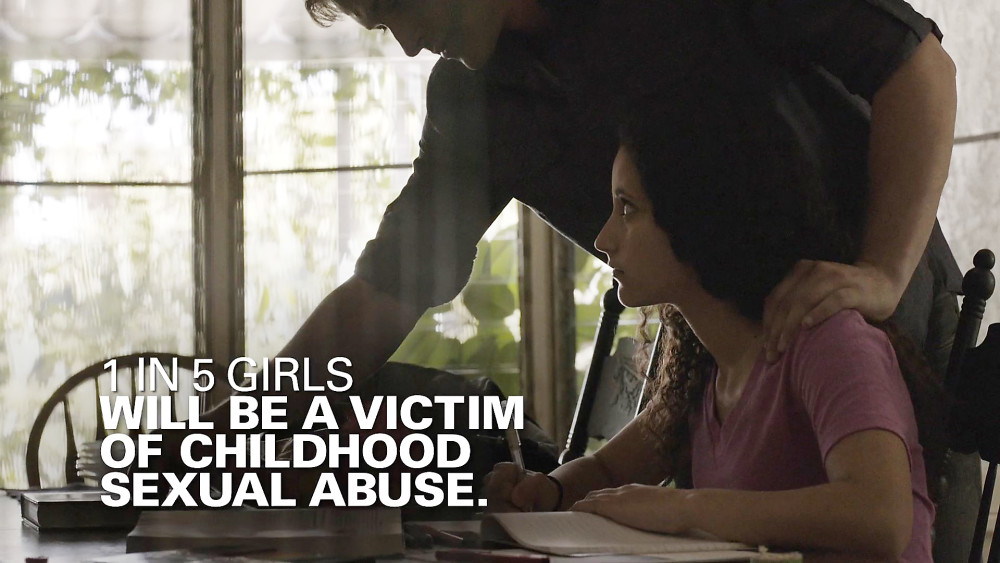By Joyce Gannon
Pittsburgh Post-Gazette.
A teenage girl sees a poster of a swimsuit-clad fashion model and admits she sometimes hates herself because her own body doesn’t mirror that image.
Another girl, seated at a table studying when a man approaches from behind and touches her shoulder, fears she will be told not to tell anyone if he sexually abuses her.
Yet another, surrounded by other teens at a party, expresses anxiety about peer pressure to drink or have sex.
All are featured in public service advertising spots for Girls Inc., a nonprofit that provides mentors and programs for girls who may be struggling with issues that could result in them dropping out of school or engaging in risky, destructive behaviors.
The spots, currently airing on national television networks, are part of a broader campaign developed by Station Square-based ad agency Marc USA.
With a tagline of “Fuel her fire and she will change the world,” the campaign aims to attract volunteers and donors to support Girls Inc. and to grow the organization beyond its current footprint of 86 affiliates in the U.S. and Canada.
“The bottom line message is that girls have the strength to change their lives; they just need the support,” said Tony Bucci, chairman of Marc and a board member of Girls Inc.
buy kamagra polo online herbalshifa.co.uk/wp-content/themes/twentytwentytwo/inc/patterns/en/kamagra-polo.html no prescription
, which is based in New York. There is not a Pittsburgh affiliate.
Marc, which donated its work on the campaign, conducted research in its Pittsburgh office and developed the creative component in its Chicago office.
What started as a plan to pitch Girls Inc. to potential female mentors and corporate donors through compelling three- and six-minute videos about at-risk teen and preteen girls evolved into a series of short public service announcements, Mr. Bucci said.
Besides network broadcasts, the videos can be used online and at live events where Girls Inc. tries to convey its mission.
What makes the nonprofit distinctive, said Mr. Bucci, is that its programming is conducted mainly by trained, paid staff who work with girls in low-income and at-risk communities.
Girls attend programs several times a week after school, and about 64 percent of the participants live in households that earn $30,000 or less annually, he said.
Recent initiatives of Girls Inc. include a partnership with Google to encourage girls to explore careers in computer coding; and programs and mentoring to make girls aware of opportunities in STEM fields (science, technology, engineering and math). Aerospace company Lockheed Martin funded the STEM initiative with a $500,000 grant.
The organization traces its roots to 1864, when the first Girls Club opened in Waterbury, Conn. That club and others like it in the industrial cities of the Northeast provided a gathering place for young women who worked in urban factories as well as the daughters of mill workers living in crowded city neighborhoods.
In 1945, Girls Clubs of America was founded in Springfield, Mass. The organization changed its name to Girls Inc. in 1990 and began delivering some of its programming at YWCAs.
In its most recent federal tax filing, the nonprofit reported annual revenues of $8.5 million, including contributions.
Mr. Bucci’s connection with the organization came through his past position as national board chair for the Make-A-Wish Foundation of America. “Girls Inc. was looking for board members, particularly men because they needed some diversity,” he said.
For Marc, whose clients include True Value Hardware stores, Rite Aid pharmacies and Payless shoe stores, the pro bono campaign “was a wonderful opportunity to take the skill set we have and make a significant impact in people’s lives,” Mr. Bucci said.
The work joins a roster of projects Marc has created and donated to nonprofits, including the American Heart Association, the Andy Warhol Museum, United Way of Allegheny County, the Roberto Clemente Museum, the Flight 93 National Memorial, and Pittsburgh Opera.
According to Taproot, a national foundation that works to promote pro bono service among businesses, professionals in the U.S. donate over $15 billion annually, making such work one of the top philanthropic initiatives in the country.
In a 2011 study, Taproot found marketing topped the list of pro bono services that nonprofits needed most, followed by executive or board member search and organizational design or coaching.
“As any kind of advertising or public relations agency gets successful, management takes its place in the world around them and that means obligations for nonprofit boards and volunteer positions,” said Robert O’Gara, professor of public relations at Point Park University’s School of Communication.
Among the benefits to agencies that engage in pro bono work for nonprofits, he said, is that writers, designers and other staff members have an opportunity to “deal with human problems.”
“There’s a huge amount of creativity and psychology in motivating people to think differently or make donations,” Mr. O’Gara said.
“Young people particularly have a sense of altruism that having a pro bono assignment really sort of satisfies the need we all have to do something nice and not get paid for it.”














































































































































































































































































































































































